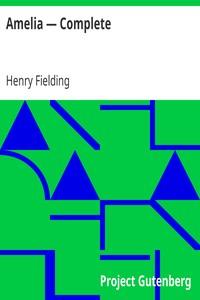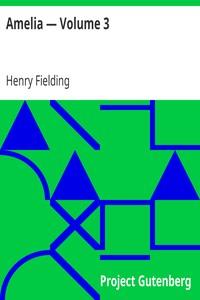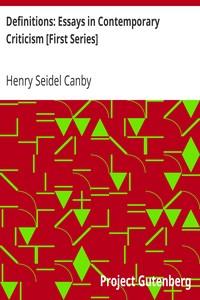Read this ebook for free! No credit card needed, absolutely nothing to pay.
Words: 65939 in 7 pages
This is an ebook sharing website. You can read the uploaded ebooks for free here. No credit cards needed, nothing to pay. If you want to own a digital copy of the ebook, or want to read offline with your favorite ebook-reader, then you can choose to buy and download the ebook.


: Station Life in New Zealand by Barker Lady Mary Anne - Barker Lady (Mary Anne) 1831-1911 Correspondence; Sheep ranches New Zealand; Governors' spouses New Zealand Correspondence; Country life New Zealand History; New Zealand Biography; New Zealand Social l
STATION LIFE IN NEW ZEALAND
PREFACE
These letters, their writer is aware, justly incur the reproach of egotism and triviality; at the same time she did not see how this was to be avoided, without lessening their value as the exact account of a lady's experience of the brighter and less practical side of colonization. They are published as no guide or handbook for "the intending emigrant;" that person has already a literature to himself, and will scarcely find here so much as a single statistic. They simply record the expeditions, adventures, and emergencies diversifying the daily life of the wife of a New Zealand sheep-farmer; and, as each was written while the novelty and excitement of the scenes it describes were fresh upon her, they may succeed in giving here in England an adequate impression of the delight and freedom of an existence so far removed from our own highly-wrought civilization: not failing in this, the writer will gladly bear the burden of any critical rebuke the letters deserve. One thing she hopes will plainly appear,--that, however hard it was to part, by the width of the whole earth, from dear friends and spots scarcely less dear, yet she soon found in that new country new friends and a new home; costing her in their turn almost as many parting regrets as the old.
F. N. B.
Letter I: Two months at sea--Melbourne.
I can hardly believe that it is only two days since we steamed into Hobson's Bay, on a lovely bright spring morning. At dinner, the evening before, our dear old captain had said that we should see the revolving light on the nearest headland about eight o'clock that evening, and so we did. You will not think me childish, if I acknowledge that my eyes were so full of tears I could hardly see it after the first glimpse; it is impossible to express in a letter all the joy and thankfulness of such a moment. Feelings like these are forgotten only too quickly in the jar and bustle of daily life, and we are always ready to take as a matter of course those mercies which are new every morning; but when I realized that all the tosses and tumbles of so many weary days and nights were over, and that at last we had reached the haven where we would be, my first thought was one of deep gratitude. It was easy to see that it was a good moment with everyone; squabbles were made up with surprising quickness; shy people grew suddenly sociable; some who had comfortable homes to go to on landing gave kind and welcome invitations to others, who felt themselves sadly strange in a new country; and it was with really a lingering feeling of regret that we all separated at last, though a very short time before we should have thought it quite impossible to be anything but delighted to leave the ship.
We have not seen much of Melbourne yet, as there has been a great deal to do in looking after the luggage, and at first one is capable of nothing but a delightful idleness. The keenest enjoyment is a fresh-water bath, and next to that is the new and agreeable luxury of the ample space for dressing; and then it is so pleasant to suffer no anxiety as to the brushes and combs tumbling about. I should think that even the vainest woman in the world would find her toilet and its duties a daily trouble and a sorrow at sea, on account of the unsteadiness of all things. The next delight is standing at the window, and seeing horses, and trees, and dogs--in fact, all the "treasures of the land;" as for flowers--beautiful as they are at all times--you cannot learn to appreciate them enough until you have been deprived of them for two months.
Letter II: Sight-seeing in Melbourne.
We admired the fine statue, at the top of Collins Street, to the memory of the two most famous of Australian explorers, Burke and Wills, and made many visits to the Museum, and the glorious Free Library; we also went all over the Houses of Legislature--very new and grand. But you must not despise me if I confess to having enjoyed the shops exceedingly: it was so unlike a jeweller's shop in England to see on the counter gold in its raw state, in nuggets and dust and flakes; in this stage of its existence it certainly deserves its name of "filthy lucre," for it is often only half washed. There were quantities of emus' eggs in the silversmiths' shops, mounted in every conceivable way as cups and vases, and even as work-boxes: some designs consisted of three or five eggs grouped together as a centre-piece. I cannot honestly say I admired any of them; they were generally too elaborate, comprising often a native , a kangaroo, palms, ferns, cockatoos, and sometimes an emu or two in addition, as a pedestal--all this in frosted silver or gold. I was given a pair of these eggs before leaving England: they were mounted in London as little flower-vases in a setting consisting only of a few bulrushes and leaves, yet far better than any of these florid designs; but he emu-eggs are very popular in Sydney or Melbourne, and I am told sell rapidly to people going home, who take them as a memento of their Australian life, and probably think that the greater the number of reminiscences suggested by the ornament the more satisfactory it is as a purchase.
I must finish my letter by a description of a dinner-party which about a dozen of our fellow-passengers joined with us in giving our dear old captain before we all separated. Whilst we were on board, it very often happened that the food was not very choice or good: at all events we used sometimes to grumble at it, and we generally wound up our lamentations by agreeing that when we reached Melbourne we would have a good dinner together. Looking back on it, I must say I think we were all rather greedy, but we tried to give a better colouring to our gourmandism by inviting the captain, who was universally popular, and by making it as elegant and pretty a repast as possible. Three or four of the gentlemen formed themselves into a committee, and they must really have worked very hard; at all events they collected everything rare and strange in the way of fish, flesh, and fowl peculiar to Australia, the arrangement of the table was charming, and the delicacies were all cooked and served to perfection. The ladies' tastes were considered in the profusion of flowers, and we each found an exquisite bouquet by our plate. I cannot possibly give you a minute account of the whole menu; in fact, as it is, I feel rather like Froissart, who, after chronicling a long list of sumptuous dishes, is not ashamed to confess, "Of all which good things I, the chronicler of this narration, did partake!" The soups comprised kangaroo-tail--a clear soup not unlike ox-tail, but with a flavour of game. I wish I could recollect the names of the fish: the fresh-water ones came a long distance by rail from the river Murray, but were excellent nevertheless. The last thing which I can remember tasting was a most exquisite morsel of pigeon--more like a quail than anything else in flavour. I am not a judge of wine, as you may imagine, therefore it is no unkindness to the owners of the beautiful vineyards which we saw the other day, to say that I do not like the Australian wines. Some of the gentlemen pronounced them to be excellent, especially the equivalent to Sauterne, which has a wonderful native name impossible to write down; but, as I said before, I do not like the rather rough flavour. We had not a great variety of fruit at dessert: indeed, Sydney oranges constituted its main feature, as it is too late for winter fruits, and too early for summer ones: but we were not inclined to be over-fastidious, and thought everything delicious.
We slept on board, had another walk on shore after breakfast the following morning, and about twelve o'clock set off for Lyttleton, the final end of our voyaging, which we reached in about twenty hours.
The next day people began calling, and certainly I cannot complain of any coldness or want of welcome to my new home. I like what I have seen of my future acquaintances very much. Of course there is a very practical style and tone over everything, though outwardly the place is as civilized as if it were a hundred years old; well-paved streets, gas lamps, and even drinking fountains and pillar post-offices! I often find myself wondering whether the ladies here are at all like what our great grandmothers were. I suspect they are, for they appear to possess an amount of useful practical knowledge which is quite astonishing, and yet know how to surround themselves, according to their means and opportunities, with the refinements and elegancies of life. I feel quite ashamed of my own utter ignorance on every subject, and am determined to set to work directly and learn: at all events I shall have plenty of instructresses. Christchurch is a very pretty little town, still primitive enough to be picturesque, and yet very thriving: capital shops, where everything may be bought; churches, public buildings, a very handsome club-house, etc. Most of the houses are of wood, but when they are burned down they are now rebuilt of brick or stone, so that the new ones are nearly all of these more solid materials. I am disappointed to find that, the cathedral, of which I had heard so much, has not progressed beyond the foundations, which cost 8,000 pounds: all the works have been stopped, and certainly there is not much to show for so large a sum, but labour is very dear. Christchurch is a great deal more lively and bustling than most English country towns, and I am much struck by the healthy appearance of the people. There are no paupers to be seen; every one seems well fed and well clothed; the children are really splendid. Of course, as might be expected, there is a great deal of independence in bearing and manner, especially among the servants, and I hear astounding stories concerning them on all sides. My next letter will be from the country, as we have accepted an invitation to pay a visit of six weeks or so to a station in the north of the province.
Free books android app tbrJar TBR JAR Read Free books online gutenberg
More posts by @FreeBooks

: Amelia — Complete by Fielding Henry - Didactic fiction; England Fiction; Domestic fiction; Married women Fiction


: Amelia — Volume 3 by Fielding Henry - Didactic fiction; England Fiction; Domestic fiction; Married women Fiction






